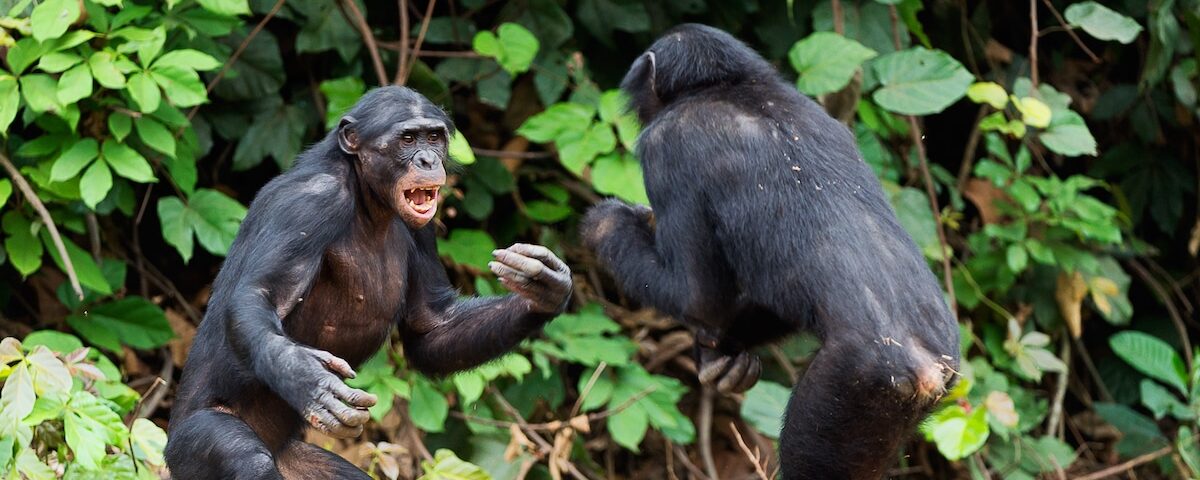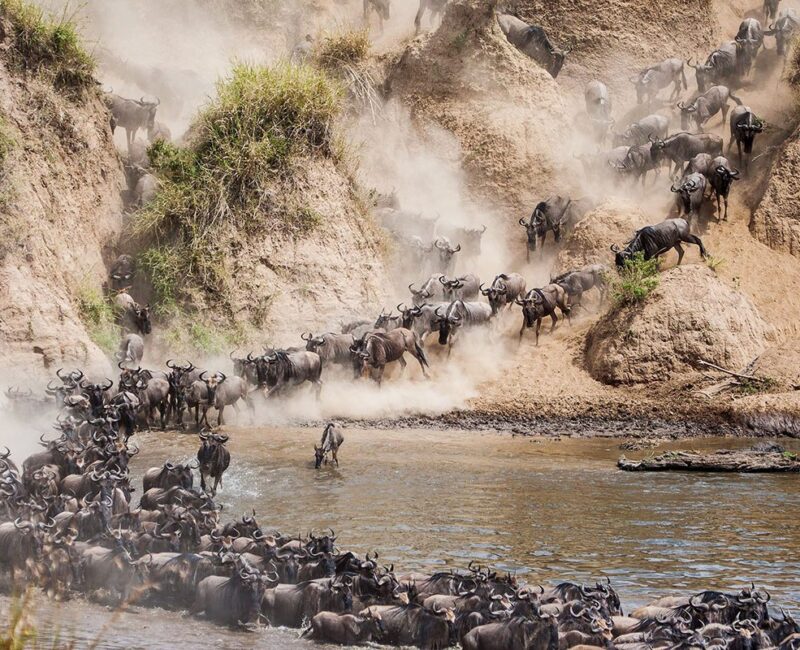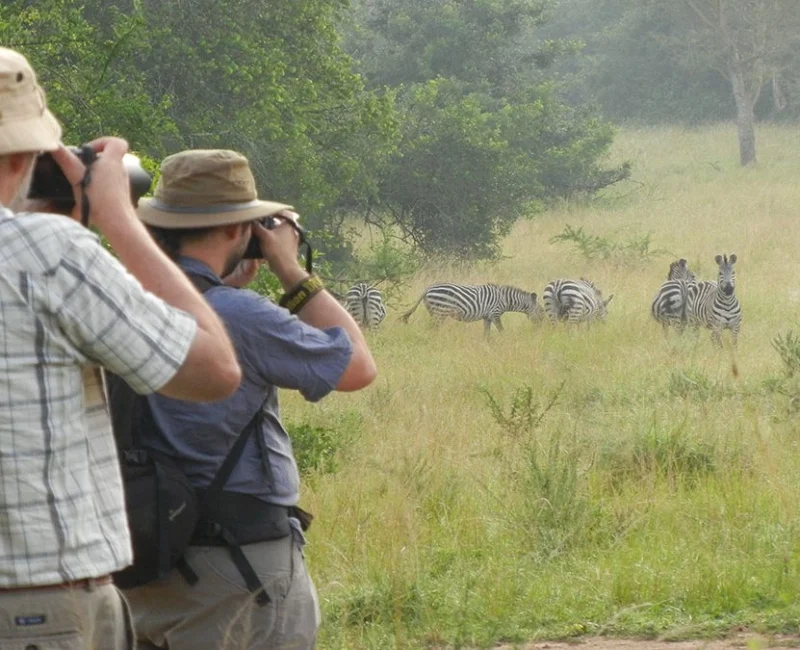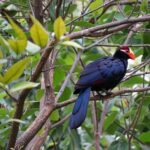
Do Birding Safaris Support Conservation in Uganda?
September 26, 2025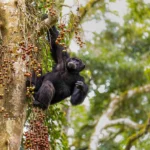
Do Chimpanzees in Uganda Live in the Wild or Semi-Captive Areas?
September 27, 2025Do Chimpanzees Behave Aggressively When Tracked?
Do chimpanzees behave aggressively when tracked? This is a frequent concern for travelers preparing for Uganda Chimpanzee Safaris. Chimpanzee tracking offers a rare opportunity to observe these fascinating primates in their natural habitats across Uganda’s national parks, including Kibale Forest, Budongo Forest, and Kyambura Gorge. These treks are often among the highlights of any Uganda Wildlife Safari, providing encounters with social, intelligent, and highly interactive animals that share remarkable similarities with humans.
Introduction: Understanding Chimpanzee Behavior During Tracking
While chimpanzees are naturally strong and can exhibit displays of dominance, aggression toward humans is extremely rare during guided treks. Proper behavior, etiquette, and expert guidance from trained safari guides ensure that interactions remain safe and enriching. Nkofu Africa Safaris emphasizes visitor education before and during the trek, including instructions on maintaining appropriate distance, avoiding direct eye contact, and refraining from sudden movements or loud noises. These protocols help mitigate any potential risk and enhance the viewing experience.
Answering the question, “Do chimpanzees behave aggressively when tracked?” is crucial for reassuring travelers and setting realistic expectations for Uganda Best Safaris. It also provides insight into chimpanzee social structure, communication methods, and territorial behavior. Chimpanzee tracking can be combined with Uganda Gorilla Trekking Safaris, Uganda Birding Safaris, and cultural interactions, making the adventure multi-dimensional. Proper guidance, preparation, and understanding of chimpanzee behavior allow guests to enjoy an unforgettable safari experience that is both safe and immersive.
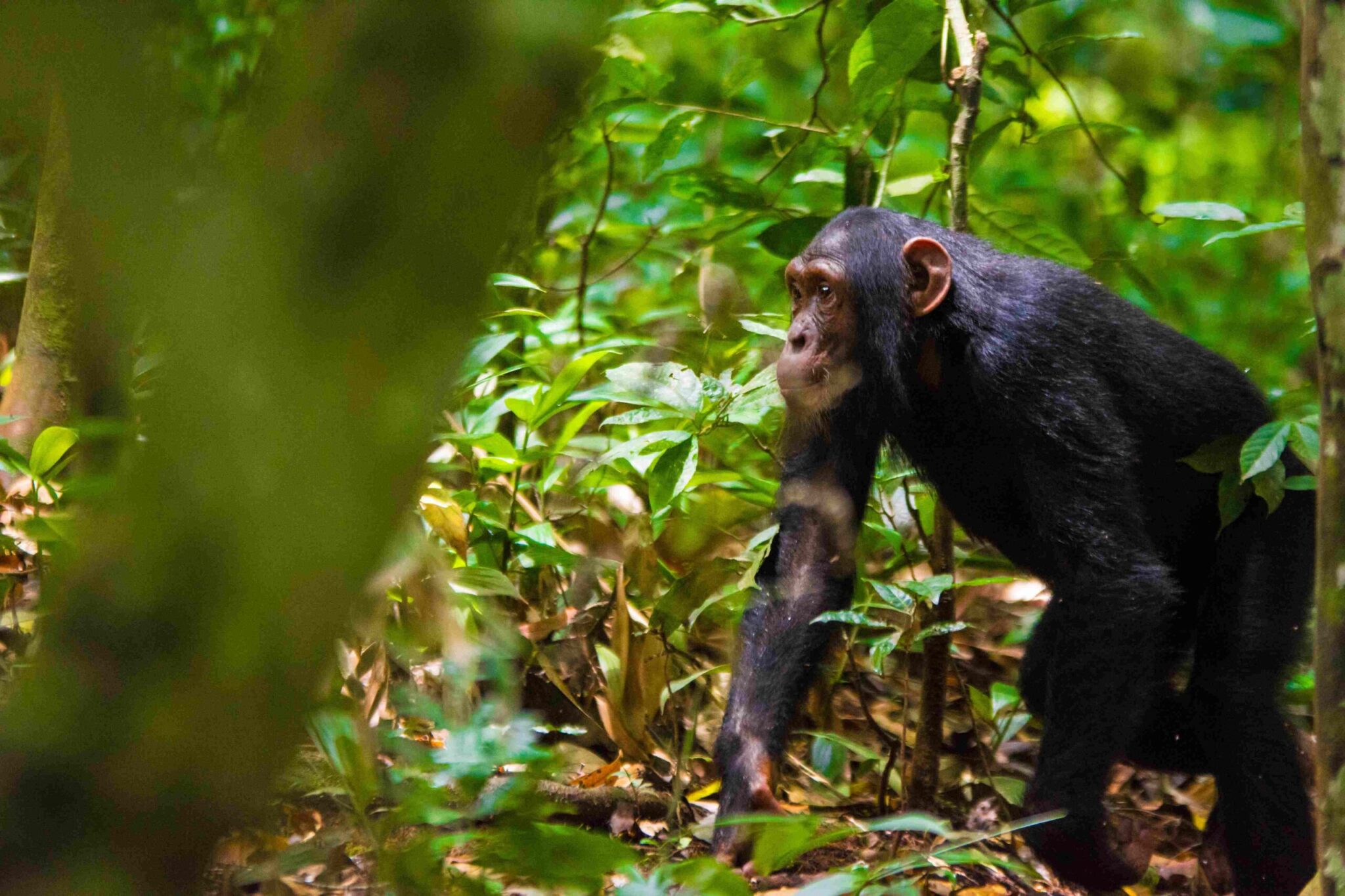 Chimpanzee Social Behavior and Displays
Chimpanzee Social Behavior and Displays
Do chimpanzees behave aggressively when tracked? Understanding their social behavior is key to answering this question. Chimpanzees live in complex communities with a strict hierarchy, where dominant males often display aggression toward each other rather than outsiders. Within these communities, displays of strength—such as vocalizations, branch shaking, or chest beating—serve primarily as communication and territorial reinforcement rather than acts of aggression toward humans.
During Uganda Chimpanzee Safaris, guides ensure that trekkers maintain a safe distance, usually several meters, which allows for clear observation without disturbing the animals. In Kibale Forest, for instance, visitors may witness chimps grooming, playing, or communicating with vocalizations. Aggressive behavior toward humans is highly unusual and typically only occurs if visitors violate park rules or approach too closely. Nkofu Africa Safaris trains all participants to respect these boundaries, ensuring safety while facilitating a rich educational experience.
By observing chimpanzees in their natural context, travelers gain insight into their intelligence, emotional depth, and social dynamics. For combined itineraries, such as pairing chimpanzee tracking with Uganda Gorilla Trekking Safaris, understanding primate behavior enhances appreciation for both species and contributes to conservation awareness. Proper preparation and guided observation help travelers answer the question about chimpanzee aggression with confidence and ensure a safe, memorable adventure.
Safety Measures During Chimpanzee Tracking
Do chimpanzees behave aggressively when tracked? While chimps are generally non-aggressive toward humans, safety protocols are essential. Nkofu Africa Safaris ensures that all trekkers receive a briefing before entering the forest, covering behavior guidelines, emergency procedures, and equipment use. Maintaining quiet, slow movements, avoiding eye contact, and adhering to group distance reduces stress for the animals and prevents potential confrontations.
Additionally, trained guides constantly monitor chimpanzee behavior, noting signs of agitation such as loud vocalizations or rapid movements. If a group exhibits stress, the guides adjust the distance or temporarily retreat to calm the animals. Trekking permits often limit group size, minimizing disturbance and ensuring safety. This professional approach allows travelers to fully enjoy Uganda Chimpanzee Safaris without fear, combining wildlife observation with education on forest ecology and primate conservation.
Safety measures also enhance combined experiences, such as including Uganda Birding Safaris or Uganda Gorilla Trekking Safaris in the same itinerary. By following guidelines and utilizing expert support, travelers can observe multiple primate species, diverse bird populations, and forest biodiversity while remaining safe and comfortable. Nkofu Africa Safaris prioritizes professional conduct, ensuring that guests enjoy immersive Uganda Best Safaris while minimizing any potential risks.
Common Misconceptions About Chimpanzee Aggression
Do chimpanzees behave aggressively when tracked? Many travelers worry due to media portrayals or isolated incidents in the wild. However, most chimpanzee aggression occurs during intra-species conflict rather than interactions with humans. Wild chimpanzees are intelligent, observant, and capable of recognizing non-threatening visitors when proper behavior is maintained.
Nkofu Africa Safaris educates travelers about these common misconceptions. Visitors learn to differentiate between warning displays, playful behavior, and genuine aggression. Chimpanzees are naturally curious, and guided observation often includes interactions where animals approach at a safe distance, allowing visitors to witness their complex social structures without risk. Understanding this behavior is crucial for appreciating the depth of the Uganda Chimpanzee Safaris experience.
Misconceptions about aggression can also impact tourism planning. By providing expert guidance, Nkofu Africa Safaris builds traveler confidence, ensuring that guests are fully informed and prepared. Combining this knowledge with Uganda Gorilla Trekking Safaris or birding adventures enhances the overall safari experience, blending education, wildlife observation, and cultural engagement. The professional approach ensures safety, enjoyment, and meaningful interactions.
Combining Chimpanzee Tracking With Gorilla Trekking
Do chimpanzees behave aggressively when tracked, and can the experience be combined with gorilla trekking? Yes, these experiences complement each other beautifully. Chimpanzee tracking offers moderate trekking through forested areas with opportunities to observe playful and social behaviors, while Uganda Gorilla Trekking Safaris often involve steeper terrain, denser vegetation, and direct encounters with the gentle giants of Bwindi or Mgahinga.
Nkofu Africa Safaris designs itineraries that allow travelers to gradually acclimate to forest trekking. Morning chimpanzee tracking can be followed by afternoon wildlife observation or birding, preparing guests for the physically demanding yet awe-inspiring gorilla encounters. Proper guidance ensures that primate interactions remain safe, educational, and enjoyable. Understanding chimpanzee social signals also helps visitors appreciate the gentle demeanor of gorillas and enhances conservation awareness.
This combined approach maximizes the value of Uganda Best Safaris, offering diverse wildlife experiences while emphasizing safety and responsible tourism. By integrating chimpanzee and gorilla tracking, Nkofu Africa Safaris ensures that travelers enjoy a seamless, immersive journey into Uganda’s most iconic natural habitats.
Observing Chimpanzee Behavior Responsibly
Do chimpanzees behave aggressively when tracked? Responsible observation is key. Maintaining distance, speaking softly, and following the guide’s instructions prevents stress or defensive behavior from the animals. Trekking in small groups minimizes disturbance, while staying on designated paths reduces impact on the forest ecosystem.
Nkofu Africa Safaris emphasizes responsible tourism, combining wildlife observation with environmental stewardship. Guests are encouraged to note behavioral patterns, vocalizations, and interactions for educational purposes without interfering with the chimps’ natural behavior. Observing responsibly enhances the Uganda Chimpanzee Safaris experience, providing insights into social hierarchy, mating behavior, grooming habits, and territorial displays.
Additionally, responsible observation complements cultural experiences. Nearby communities often engage in forest conservation, traditional crafts, or local storytelling about wildlife, offering travelers opportunities to combine Uganda Cultural Safaris with chimpanzee tracking. This approach deepens appreciation for both wildlife and human interaction with the environment, reinforcing Nkofu Africa Safaris’ reputation for expert, safe, and immersive safari experiences.
Preparing Mentally and Physically for Chimpanzee Tracking
Do chimpanzees behave aggressively when tracked? While the risk of aggression toward humans is low, preparation enhances confidence and enjoyment. Mentally, travelers should be ready to follow instructions, remain calm, and observe quietly. Physically, moderate fitness is required to navigate forest trails, climb gentle slopes, and manage uneven terrain.
Nkofu Africa Safaris provides guidance for pre-safari conditioning, including light hikes, stretching, and gradual acclimatization. Trekking poles, suitable footwear, hydration, and lightweight clothing are recommended. Being prepared ensures that travelers can safely enjoy the trek and respond calmly to unexpected animal behaviors, such as warning vocalizations or rapid movements. Proper preparation also improves the experience of combining chimpanzee tracking with Uganda Gorilla Trekking Safaris, birding, or wildlife observation.
Through careful mental and physical preparation, guests can appreciate chimpanzees’ complex behavior without fear. Nkofu Africa Safaris’ professional approach ensures that every participant experiences the richness of Uganda Best Safaris while remaining safe, engaged, and informed.
Conservation and Educational Insights
Do chimpanzees behave aggressively when tracked? Understanding their behavior provides more than just safety assurance; it contributes to conservation education. Chimpanzees are endangered species, and responsible tracking fosters awareness about habitat preservation, anti-poaching measures, and ecological balance.
Nkofu Africa Safaris integrates educational elements into every trek. Travelers learn about chimpanzee diets, social dynamics, nesting habits, and communication. These insights are amplified when treks are combined with Uganda Gorilla Trekking Safaris, Uganda Birding Safaris, or Uganda Cultural Safaris, offering a comprehensive understanding of the forest ecosystem and the role humans play in conservation. By appreciating chimpanzee behavior responsibly, travelers contribute to global awareness while enjoying immersive and safe wildlife experiences.
Do Chimpanzees Move in Groups or Individually During Tracking?
Conclusion: Safe, Enriching Chimpanzee Safari Experiences
Do chimpanzees behave aggressively when tracked? Rarely, provided visitors follow guidelines, maintain appropriate distance, and respect the animals’ space. Nkofu Africa Safaris ensures that all participants receive expert briefings, use proper equipment, and adhere to safe trekking protocols. These practices make Uganda Chimpanzee Safaris a secure, educational, and unforgettable experience.
Combining chimpanzee tracking with Uganda Gorilla Trekking Safaris, birding adventures, or cultural excursions enhances the overall safari experience. Observing chimpanzee behavior responsibly deepens appreciation for wildlife, promotes conservation, and strengthens Uganda’s reputation as a world-class safari destination. With preparation, guidance, and professional support from Nkofu Africa Safaris, travelers can confidently enjoy these remarkable encounters as part of Uganda Best Safaris, creating memories that last a lifetime.

